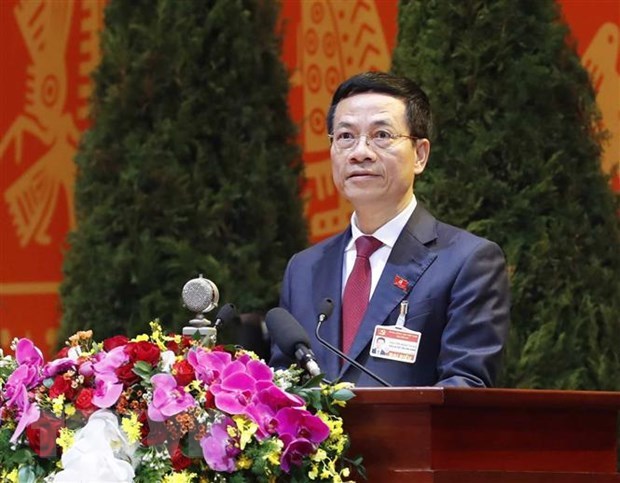The Party Central Committee issued Resolution No 52-NQ/TW in September 2019 on a number of policies and guidelines regarding the country’s engagement in the fourth Industrial Revolution, with an emphasis on speeding up digital transformation.
Prime Minister Nguyen Xuan Phuc also issued Decision No 749/QD-TTg approving the national digital transformation programme by 2025 and vision towards 2030.
Minister of Information and Communications Nguyen Manh Hung described digital transformation as an institutional revolution, saying institutions need to be adjusted flexibly in order to adapt to new technologies, products, services, and models.
Only innovation and creation can help Vietnam escape from the middle-income trap, he emphasised.
Under the programme, Vietnam expects to be among the top 50 countries in terms of e-government by 2030, while the digital economy is to contribute 30 percent to GDP.
|
 |
|
Minister of Information and Communications Nguyen Manh Hung (Photo: VNA) |
More than 80 percent of the population is to have e-payment accounts over the course of the next decade, and Vietnam aims to be among the 30 leading countries in cyber security and safety.
According to Pham The Truong, former General Director of Microsoft Vietnam, digital transformation is an inevitable trend among businesses in the context of integration and COVID-19.
Vietnam was one of the first two countries worldwide to organise online trade promotion conferences amid the pandemic, helping enterprises approach partners and markets while remaining at home, the Ministry of Industry and Trade (MoIT) said.
Last year, the MoIT and other ministries, localities, and business associations organised more than 500 international trade promotion conferences virtually. As a result, over 1 million transactions were conducted and hundreds of thousands of Vietnamese firms assisted in trade promotions around the world.
The banking and finance sector has also taken strong steps forward in digital transformation over recent times.
Figures from the Ministry of Information and Communications reveal that the country is now home to around 58,000 digital technology firms employing more than 1 million workers.
In 2020 alone, up to 13,000 digital technology enterprises were established, the ministry added.
Truong said businesses that have a vision, a strategy, an organisation culture, and potential will lead the digital transformation./.

 Previous page
Previous page Back to top
Back to top







